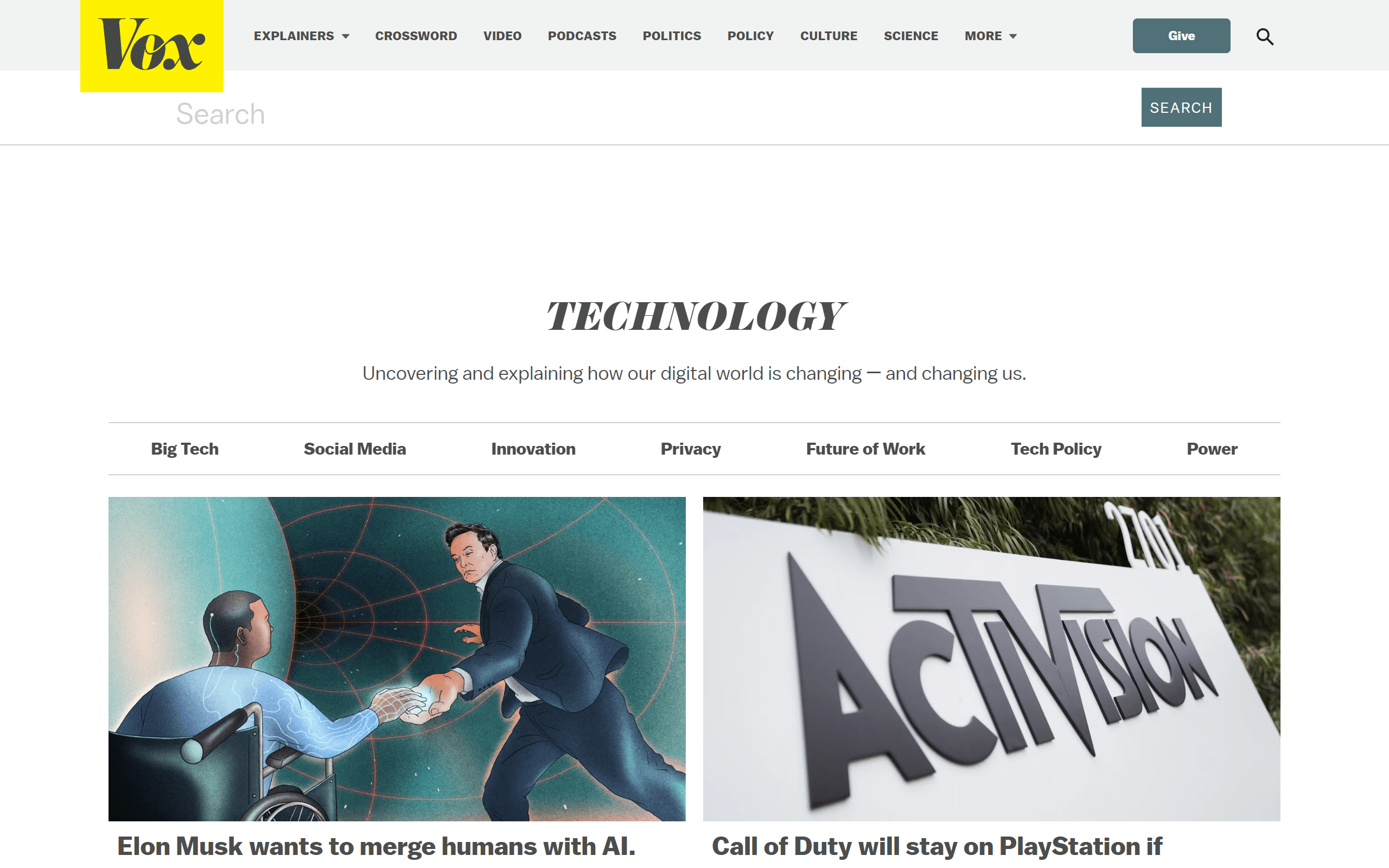The Best tech blog: Your Vital Overview to Navigating the Digital World
The Best tech blog: Your Vital Overview to Navigating the Digital World
Blog Article
Exactly How Blockchain Innovation Is Revolutionizing Data Protection
Blockchain technology is essentially altering the landscape of information safety and security by introducing a decentralized framework that guarantees enhanced openness and resilience. Unlike traditional systems, which count on centralized data repositories, blockchain disperses information throughout a network, decreasing susceptabilities and single points of failure. The use of advanced cryptographic techniques ensures that information continues to be tamper-proof, cultivating depend on amongst stakeholders and users. As markets rapidly adapt to this modern technology, concerns arise regarding its wider influence and prospective obstacles. What effects does this change hold for future information security methods and governing frameworks? The responses may surprise you (Best tech blog).
The Fundamentals of Blockchain
Blockchain technology, an innovative idea in electronic data monitoring, essentially transforms how details is stored and protected. At its core, a blockchain is a distributed ledger that tape-records deals across a network of computer systems, ensuring openness and immutability. The modern technology operates a chain of blocks, each containing a listing of deals. When a block is loaded, it is time-stamped and connected to the previous block, developing a chronological chain.
Key to recognizing blockchain is the hashing process, which encrypts purchase information into a distinct alphanumeric code. This cryptographic function guarantees that any kind of modification in the deal information leads to a totally different hash, thus securing against tampering. The consensus mechanism, another crucial element, confirms and confirms new purchases via a network of nodes, consequently getting rid of the demand for a central authority.
Furthermore, blockchain's append-only framework makes sure that information, once included, can not be erased or modified. This characteristic guarantees a irreversible and proven record of deals, promoting depend on among individuals. Therefore, blockchain gives a durable framework for data honesty, supplying sectors a reliable method for monitoring and handling electronic info in a protected, transparent fashion.
Decentralization and Safety And Security
Decentralization, a core principle of blockchain innovation, dramatically improves information protection by dispersing control across a network as opposed to depending on a particular, centralized entity. This distribution reduces the threat of solitary points of failing, which prevail in conventional centralized systems. By spreading data across many nodes, blockchain makes certain that also if one node is endangered, the entire network remains safe and secure. This redundancy not just fortifies the stability of the information but additionally boosts its durability to cyberattacks and system failures.

Each individual in the network has accessibility to the entire blockchain, enabling them to verify and audit deals separately. Overall, decentralization is important in enhancing data safety in blockchain networks.

Cryptographic Strategies
At the heart of blockchain technology, cryptographic methods play a crucial role in protecting information, ensuring both confidentiality and integrity. These methods are foundational to the blockchain's capacity to firmly tape deals in a decentralized fashion. Cryptography in blockchain utilizes a combination of asymmetric and symmetric formulas to encrypt data, making it available just to accredited events - Best tech blog. Public and personal essential sets are main to this process, permitting protected authentication and identity Full Article verification without exposing delicate info.
Hash features are an additional essential part, changing input information right into a fixed-size string of characters, successfully producing a special electronic finger print for each and every block. This makes certain that any attempt to modify the data will certainly cause a totally various hash, hence maintaining the immutability of the blockchain. Electronic trademarks verify the authenticity and stability of deals, providing a layer of non-repudiation.
The decentralized nature of blockchain, incorporated with robust cryptographic techniques, gets rid of the demand for middlemans, minimizing prospective susceptabilities. As blockchain innovation develops, innovations in cryptography such as zero-knowledge evidence and homomorphic encryption remain to boost protection procedures, additionally strengthening information defense in this cutting edge digital journal system.
Use Cases Across Industries

In the healthcare industry, blockchain ensures the safe storage space and sharing of person documents, advertising interoperability while guarding delicate information from unapproved accessibility. This innovation empowers people with control over their clinical background and promotes smooth sychronisation amongst doctor.
Supply chain administration advantages considerably from blockchain's unalterable journal, which ensures traceability and credibility of items from beginning to customer. By enhancing transparency, blockchain helps mitigate issues such as counterfeiting and underhanded sourcing.
Additionally, blockchain's decentralized nature is improving the energy market by making it possible for peer-to-peer energy trading, where customers can get and sell excess renewable resource directly. This promotes a much more sustainable and efficient energy ecological community.
In the world of copyright, blockchain offers a tamper-proof system for makers to register and safeguard their works, making sure rightful acknowledgment and fair settlement. These varied usage instances underscore blockchain's function as a critical force in redefining information security throughout sectors.
Future of Data Security
As we aim to the future of data security, blockchain modern technology is poised to play a crucial function in protecting electronic info. pop over here With its decentralized and unalterable characteristics, blockchain provides a robust framework for safeguarding delicate data versus unapproved accessibility and cyber risks. This technology makes certain that once information is tape-recorded, it is nearly difficult to alter without detection, therefore offering a significant benefit over conventional information storage approaches.
The assimilation of blockchain with other advanced innovations, such as synthetic intelligence and the Net of Things (IoT), is expected to boost information protection techniques further. By Discover More Here leveraging clever agreements, companies can enforce and automate safety protocols, lowering human mistake and enhancing performance. In addition, blockchain's capability to give transparent and traceable purchases will certainly boost trust fund and accountability in information administration methods.
As regulatory landscapes develop, blockchain's compliance-friendly nature will certainly come to be increasingly pertinent. It can assist organizations fulfill strict information defense guidelines, such as the General Information Protection Regulation (GDPR) and the California Consumer Privacy Act (CCPA), by offering verifiable documents of data processing tasks. Inevitably, blockchain's special qualities position it as a transformative tool in the continuous pursuit to secure the digital world versus ever-evolving cyber dangers.
Conclusion
Blockchain technology stands for a standard change in data security by leveraging decentralization and cryptographic methods to boost openness, trust, and data stability. Its ability to remove solitary factors of failure and employ agreement systems considerably decreases the risk of scams and cyberattacks. This ingenious framework not only equips customers with better control over their data yet additionally lines up with regulative compliance. As cyber hazards develop, blockchain emerges as an essential device for durable information protection across different markets.
Blockchain modern technology is fundamentally modifying the landscape of data protection by introducing a decentralized framework that promises boosted transparency and resilience. Unlike conventional systems, which count on centralized data databases, blockchain disperses information throughout a network, lessening vulnerabilities and single points of failing.Decentralization, a core concept of blockchain technology, substantially boosts information safety by dispersing control throughout a network rather than depending on a singular, centralized entity.At the heart of blockchain innovation, cryptographic techniques play a critical function in protecting data, making sure both confidentiality and stability.Blockchain innovation represents a standard shift in information safety and security by leveraging decentralization and cryptographic strategies to improve openness, depend on, and data stability.
Report this page